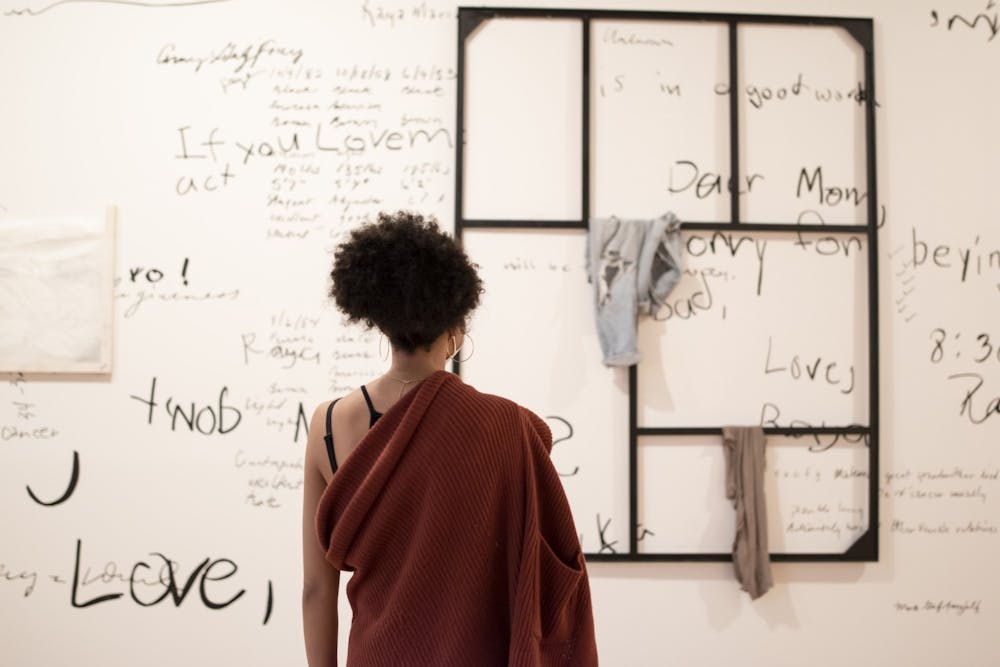In her senior thesis show “sarry about saying you don’t,” artist Raya Ward ’22 debuts a captivating visual language that incisively guides viewers through a sophisticated meditation on the nature of our personal archives — how they are built, how they persist, how well they represent us, and to whom they are legible.
The first prompt toward these questions is unavoidable as you enter the space. Scattered across the gallery is furniture from Ward’s living room and bedroom. To the left lies a floral couch across a thick square television. In the center, but pushed tight to the wall, is a gray ottoman with a cozy blue blanket strewn across the floor next to it. Just off to the right, atop her desk, sits an Apple desktop computer open to a digital project where users can share their grief around climate change — Ward’s second thesis done in collaboration with her friend Kyle Barnes ’22.
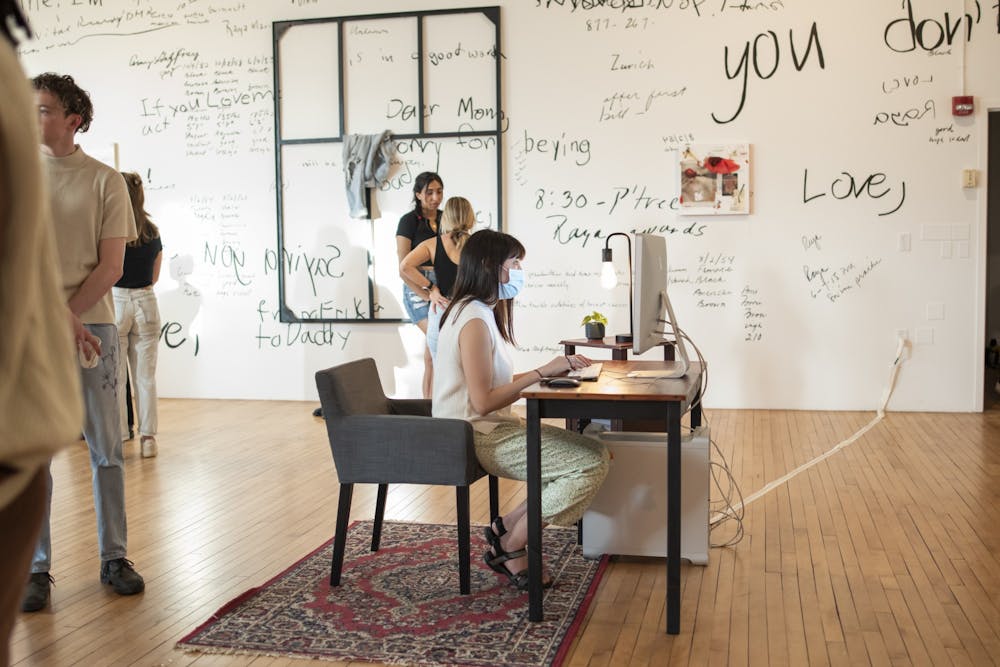
Courtesy of Collin Riggins
The gallery is Ward’s space, occupied and intimately specific to her.
“I put so much of myself in the gallery, and that makes me uncomfortable. And in a way to almost demand respect, I was gonna make it very clear that you are walking into me, walking into my room,” Ward told me as we shuffled through the furniture and across the gallery.
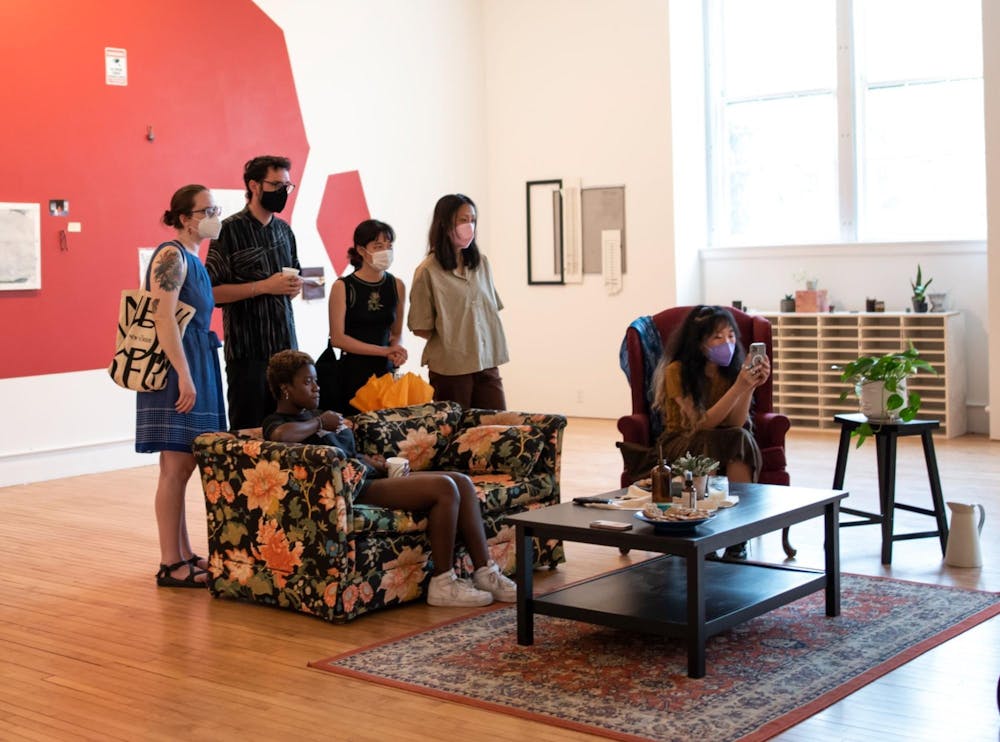
Courtesy of Collin Riggins
For art audiences that have become too accustomed to the genre of trauma art, the furniture grounds the conceptual intimacy of the work in a physical presence, calling on us to consider our ethical responsibilities as viewers participating in a certain type of surveillance.
The work is so deeply raw, much of it either drawing from or tangibly including the archive of Ward’s adoption and her childhood with her mother, who has since passed. For almost two years, Ward arrested her creative production, unsure of how to process such deep loss in such a public medium.

“In the last two years I hadn’t made any good art. I just didn’t make a lot of art … because my work has always been really personal. I made a desperate attempt at a piece in my junior year and it was just text and it said ‘I don’t wanna make art cause I know it is gonna be about you,’” Ward recounted.
Returning to her practice, Ward constructed a visual language that is all her own — a rare feat for an artist this early in their career. The extension of canvas into the work, the penchant for partial legibility and allusion, the archive as inspiration and medium of the work, it all presents a unified aesthetic that is truly unique and potent.
But what makes this exhibition extraordinary is its mobilization of audience.
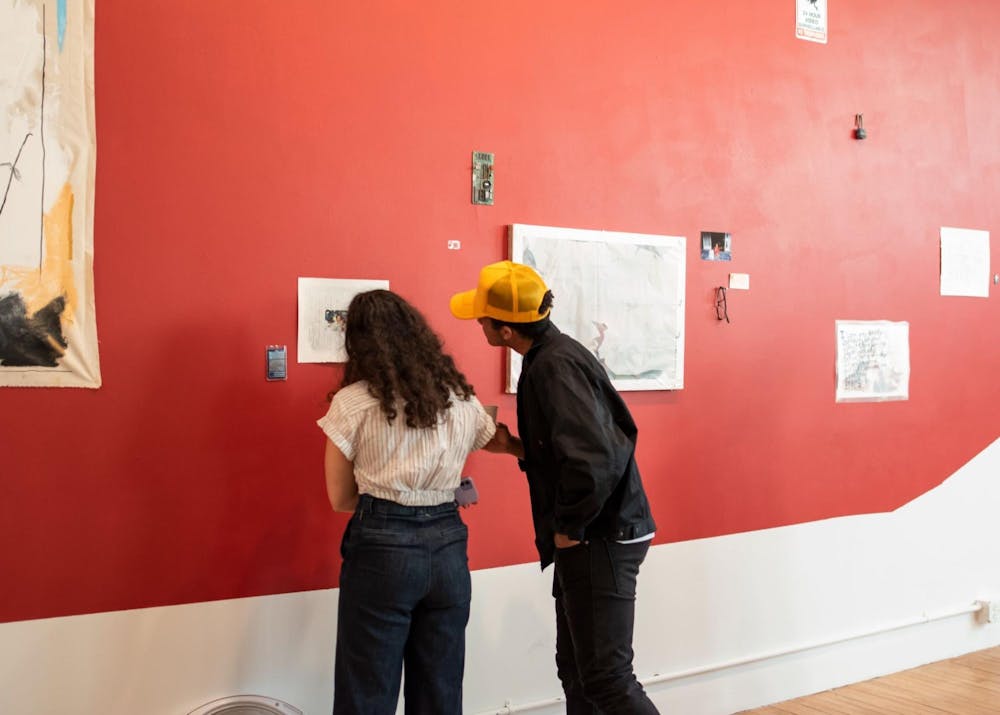
Courtesy of Collin Riggins

Many of the pieces, particularly “LV for Dallas” and “Babysitting Raya,” divide the audience from revealing documents and drawings with semi-transparent textures like tracing paper and vellum. The archive, in these works, exerts a presence despite its illegibility. There is a desire to know, to make out that one letter, to identify that symbol, to understand what is being hidden from us.
With works like the “data ghosts” — another collaboration with Barnes — Ward brilliantly constructs a moment of reflection as she exposes the extent of the surveillance and scrutiny we experience online.
As we interact with Ward’s archive, we become conscious of the antagonistic desires that lie within us: the desire to decipher and uncover the world around us, and the desire to encode and protect our personal lives and information.
This introspection is not abrupt or forced, and actually slowly arises as a result of the careful curation and installation choices that Ward makes. In the vulnerability of Ward’s work, she offers space for those engaging with the art to also offer up their own practices, their own habits, their own archives to scrutiny and reflection.
At her reception last Thursday, in an impromptu speech egged on by friends, Ward emphasized community building as a core element of her practice. Generating an audience is the name of the game in a competitive and capital-obsessed art world, but constructing a community around one’s practice requires a whole other level of artistic and social dexterity. The reception itself: vibrant, warm, chatter, and hug-filled was proof of this practice, and a testament to the person behind it. Beyond the caliber of Ward’s technical and conceptual acuity is a truly dynamic talent for the formation and nurturing of community. The art world, and indeed our world more generally, needs more of what this show offers.
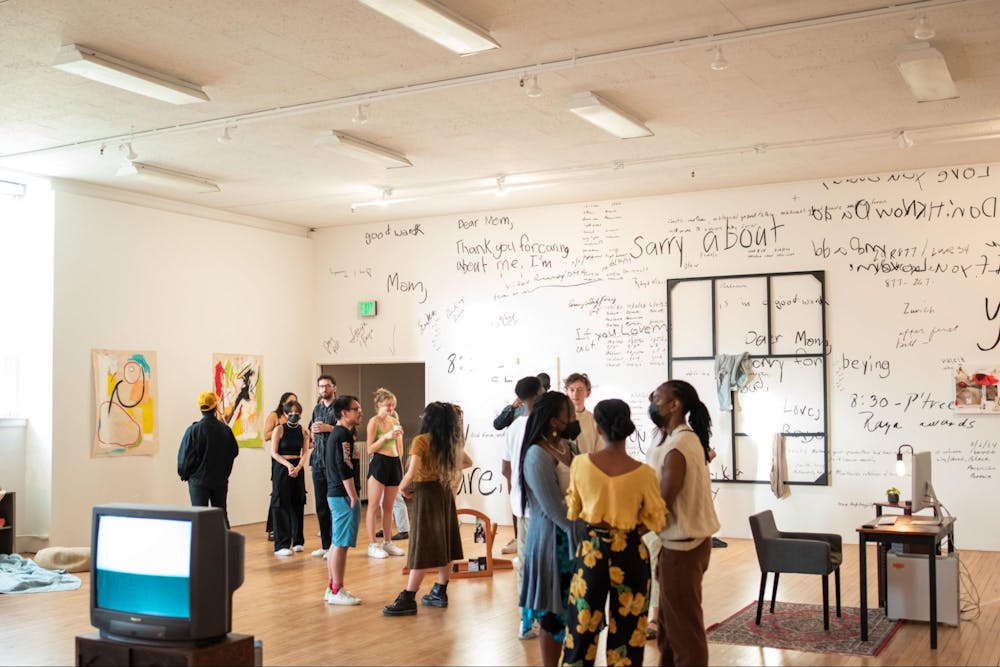
Courtesy of Collin Riggins
“sarry about saying you don’t” is open until April 23 in the Hagan Gallery at 185 Nassau Street.
Omar Farah is a Managing Editor at the ‘Prince.’ They are also a visual artist and curator passionate about the art community on campus and beyond. They can be reached at ofarah@princeton.edu.





